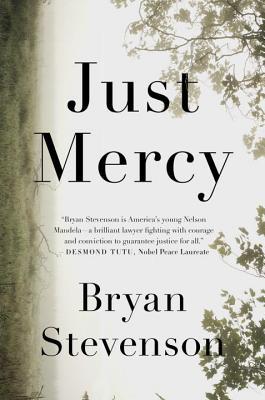Understanding social justice topics, particularly surrounding race and racial injustice, is a journey and knowing where to begin can be overwhelming. We have created this resource page for you, regardless of where you are on that journey to take the next step in understanding race in our church, our community and in America.
The following resources are meant for a variety of learners: ones who read, listen, watch and experience. We also have a link to resources for families to have difficult conversations regarding race and racism with their children and grandchildren.
For those interested in taking a “deeper dive” we have asked our staff to recommend books that have helped them personally understand race in our world.
Links of resources from Conversations on Race and Culture
Links to additional resources to read, listen to and watch
Waking Up White: And Finding Myself in the Story of Race
Formerly used as a congregational book study.

“I originally read the book “Waking Up White” in early 2017. Since then I have read several more books on racial justice and I participated in Grace’s “Conversations on Race” so I thought I was “beyond” this book. Why would I need to read “Waking Up White” again? I had figured it all out. Because “Waking Up White” was going to be our congregational book study in January, I recently re-read the book. Much to my chagrin, I found myself and my life woven into many of the stories shared in this book. Whether you have read many books about racial justice or none, I invite you to join me [in reading and studying this book].”
Nancy Jenkins, Grace Member
Book Study Resources: Section One, Section Two, Section Three, Section Four, Follow Up
Just Mercy: A Story of Justice and Redemption by Bryan Stevenson
Recommended by Kristi Larson, Director of Youth and Family Ministries
To Kill a Mockingbird is one of my all-time favorite books for its captivating storyline and the richness of the characters. At the age of 15, the book taught me that art can teach us about injustices we may never understand. Today, racial injustice in our judicial system is still alive and well and the memoir Just Mercy by Bryan Stevenson helped me to understand the specifics of our modern-day legal system and the barriers our society has set in place for people of color.
Stevenson, the founder of the Equal Justice Initiative, tells the real story of defending an innocent black man on death row in Monroeville, Alabama, the hometown of Harper Lee, and the basis for the location of the book To Kill a Mockingbird. While this overarching storyline is moving, the history of many injustices in the legal system including children in the criminal justice system, mental health, race, poverty, life in prison, and the death penalty helped me understand our legal system in a new way.
I was captivated by this book, not only because of what I learned, but also the stories of real people Stevenson encountered as a lawyer over the past several decades and his care, empathy, and compassion throughout his career for the marginalized. While it feels weird to call a book on this topic “entertaining” I can say that his writing style is easy to understand and the book contains more personal stories than facts and figures. In the end, I needed to confront my own prejudices and assumptions I had made about our legal system and my own blindness and privilege.
Just Mercy has also been made a major motion picture and is available for streaming, which I also recommend. But let’s face it, the book is ALWAYS better than the movie.
The New Jim Crow: Mass Incarceration in the Age of Colorblindness
by Michelle Alexander
Recommended by Pastor Maria Markman, Associate Pastor of Faith Formation
Alexander sets out to write a book for those who care deeply about the goals of racial justice. People who need clear facts and figures finally prove to themselves the severity of the crisis at hand, especially in regards to policing and mass incarceration and the disparities perpetuated by those systems which are largely based on race. She writes for those who need help cultivating an argument for change regarding our criminal justice system because it looks like something we have seen before.
One of her main themes throughout the book is the insidious nature of the mentalities that formed slavery, Jim Crow, and our current criminal justice system, that in reality, they are just manifestations of past systems of oppression recycled. Alexander curates a historically accurate story of how the United States got to this position from slavery to freedom, law and order to the war on drugs all the while focusing on the growing number of those imprisoned in the United States, largely black and brown bodies. Praise and critique of Alexander’s work lie in the structure of the book and argument. She sets out to give statistics to prove her point and statistics is what she gives. The book is filled with massive amounts of well-defined legal jargon. It reads like a textbook and a well-researched legal deposition. For the lay reader, it is a lot and may dissuade some readers from its crucial argument because of its meticulous statistical rhetoric. Towards the end of the book, if the reader can make it that far, Alexander makes a move at our collective humanity. Stating if the statistics did not move you, maybe a move towards recognizing each criminal as being human – ”You gotta hate the crime, but love the criminal.” Through showing compassion for our fellow humans recognizing each complexity of who they are including color, not allowing for color blindness as an excuse for our disproportionate laws and subsequent actions regarding our legal and caste systems in the United States. Alexander ends with an eloquent quotation from the great James Baldwin, “ We cannot be free until they are free.”
If you cannot read the book, Ava Duverney’s Netflix documentary 13th outlines similar arguments, interviewing Michelle Alexander, the author of The New Jim Crow, as well as candidates on both sides of the aisle.
Dear Church: A Love Letter from a Black Preacher to the Whitest Denomination in the U.S. by Pr. Lenny Duncan
Recommended by Pastor Maria Markman, Associate Pastor of Faith Formation
This is an interesting read. Lenny Duncan, an ELCA pastor now serving in Washington State, writes as an insider with outsider knowledge. Being Black, formerly incarcerated, formerly homeless, and formerly unchurched, Duncan describes how and why he fell deeply in love with the ELCA. And it is out of that love that he describes the harsh realities of race relations in our denomination. He links church decline and declines in vitality to a lack of diversity in the church. He doesn’t just cover race, he also talks about Queer rights, toxic masculinity, and resisting nationalism. This book reads like part love letter, part manifesto. It can be trying at times and definitely convicting, but in the end hopeful.
Dear White Christians: For those still longing for Racial Reconciliation
by Jennifer Harvey
Recommended by Pastor Maria Markman, Associate Pastor of Faith Formation
Harvey grounds her argument by outlining what has been said and possible critiques to her limited focus. She outlines her audience, what language she uses, and the totality of her focus. She claims the book is for those “still longing” for reconciliation and yet she offers a new reparations paradigm. There is more work to be done before we can reach reconciliation. Harvey reorients us in our historical memory of our shared history specifically calling to mind the civil rights movement. She emphasizes and defines the necessity of Black Power. Rather than reconciliation, which tends to be what Harvey calls a “White Vision,“ we must first address reparations. Harvey defines the “white vision” in terms of Sunday separation (not segregation). Why do white people not join historically black churches? Harvey suggests that white people are not willing to give up their power in that way. She suggests white people, in particular, need to embrace racial differences noticing not only their benefit from the system BUT ALSO how people of color are harmed by the system. Harvey suggests white people emphasize relationality over action, highlighting privilege and disparity within race relations. If we prioritize relationships our unjust action is justified. Harvey suggests whiteness offers a sort of false moral high ground, and so before reparations can even begin, white people must admit our moral failing which with the backdrop of a moral high ground is almost impossible. Harvey’s reparations begin with a constructionist view, if white people begin to reconstruct systems of disparity like the social justice system, we address systems and structures and are not focused on our lack of morality or whether or not we are comfortable with our whiteness. She ends her book with an example of faith communities entering into the work of reparations. And Harvey concludes reparations work is not laid out in a step-by-step process but if we dare to engage it, might the reality of reconciliation actually begin?
Scene On Radio Podcast’s Season 2: “Seeing White” Other Podcasts
A 14-part documentary series exploring whiteness in America—where it came from, what it means, and how it works.
Just what is going on with white people? Police shootings of unarmed African Americans. Acts of domestic terrorism by white supremacists. The renewed embrace of raw, undisguised white-identity politics. Unending racial inequity in schools, housing, criminal justice, and hiring. Some of this feels new, but in truth, it’s an old story. Why? Where did the notion of “whiteness” come from? What does it mean? What is whiteness for? Scene on Radio host and producer John Biewen took a deep dive into these questions, along with an array of leading scholars and regular guest Dr. Chenjerai Kumanyika, in this fourteen-part documentary series, released between February and August 2017. The series editor is Loretta Williams.
For all 14 Podcasts: https://www.sceneonradio.org/seeing-white/








